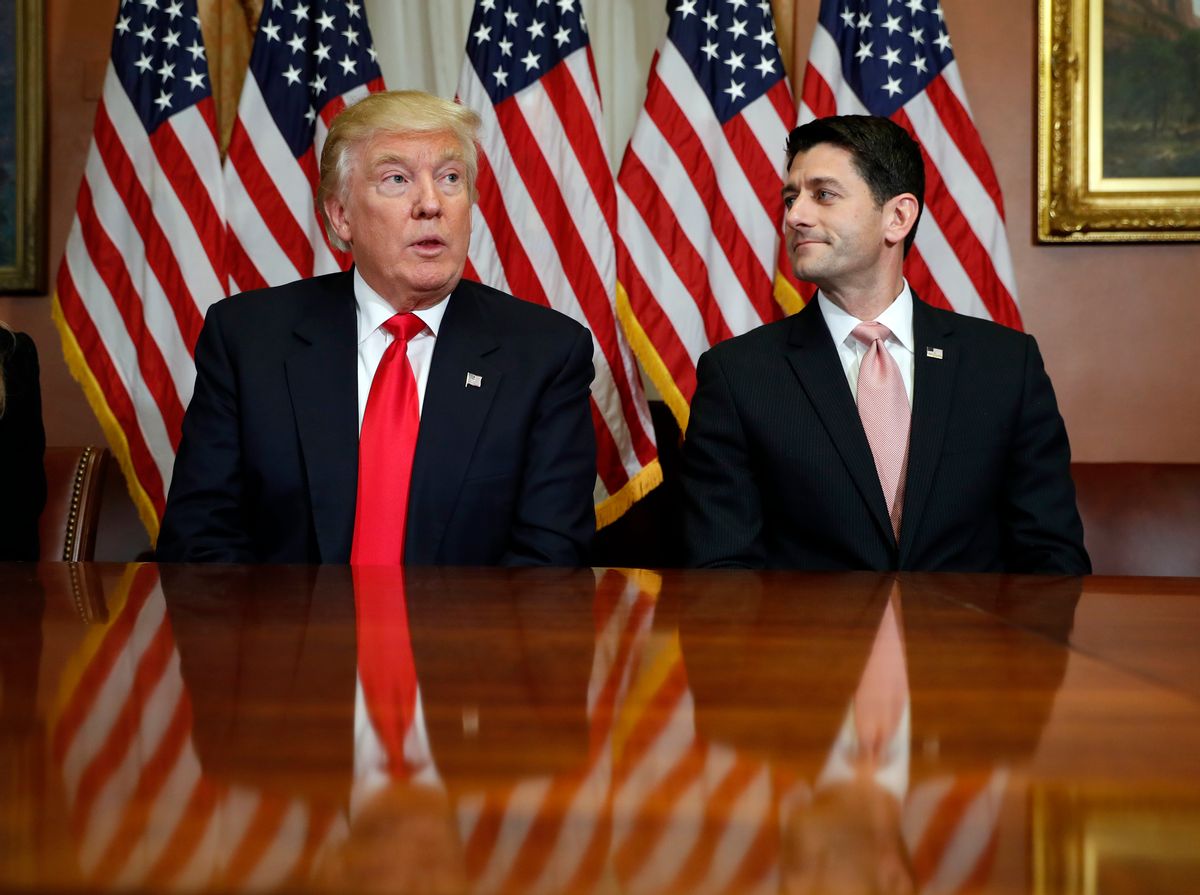President Donald Trump and his administration, along with congressional Republicans, are reportedly thinking of implementing massive tax cuts that aren't revenue neutral — ones that would cause the deficit to rise dramatically.
"A number of Trump advisers in recent weeks have privately questioned whether tax reform needs to be 'revenue neutral,'" Politico reported on Wednesday, citing people involved in the early discussions. What the Trump administration has not yet done, Politico noted, is figure out how to avoid ballooning the deficit while following through on its campaign promises to increase military spending, construct a border wall, and finance infrastructure development. This dilemma, along with the fact that it will be difficult for Republicans to bring Democrats on board for a tax cut plan that increases the deficit (the one from Trump's campaign would cost $10 trillion over a decade), could prove very difficult for the Trump team to overcome.
House Speaker Paul Ryan is expected to fiercely oppose any tax cut plan that isn't revenue neutral. Trump's chief of staff Reince Priebus, strategist Steve Bannon and son-in-law Jared Kushner are all reported to have kept silent when Ryan made that clear to them during a private meeting.
Republican legislators seem to be split on the question of revenue neutrality.
"I think the government should be smaller, and I’m for tax cuts and spending cuts that reduce the overall size of the government," Sen. Rand Paul, R-Kentucky, told Politico on Tuesday. "Trump’s [campaign] tax cut was large and not ‘revenue-neutral.’ I support what Trump ran on."
This attitude was echoed by former Freedom Caucus Chairman Jim Jordan, R-Ohio, who told Politico that "I’ve never subscribed to the Washington ‘revenue-neutral thinking. It’s like: Put together a tax plan that produces economic growth; don’t let it be constrained by anything else."
In order to pass large tax cuts quickly, Republicans have been trying to do so through the process of budget reconciliation — which they cannot use for programs that will add to the deficit in the long term.
"That’s always been the plan: You have to be [revenue-neutral], really, for reconciliation, so there’s really no option other than that," said Rep. Devin Nunes, R-California, who is also a Trump transition official. This attitude was echoed by Rep. Bill Flores, R-Texas, who said that "we should take no action that increases deficits or that increases the debt."
Trump's tax cuts have also been criticized for primarily helping the wealthy while actually raising taxes on many lower-income individuals, as well as proposing a so-called "skinny budget" that will cut funding for everything from the arts to protecting women suffering from domestic violence.



Shares